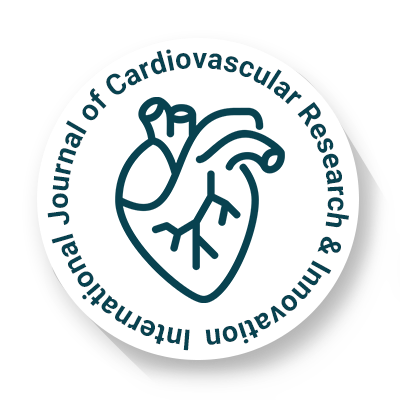
International Journal of Cardiovascular Research & Innovation
OPEN ACCESS

OPEN ACCESS
Molecular cardiology is an emerging discipline that integrates molecular biology, genetics, and biochemistry to understand the underlying mechanisms of cardiovascular diseases. By delving into the cellular and genetic foundations of heart function, this field is revolutionizing diagnostics, treatment strategies, and preventive care. Unlike conventional cardiology, which primarily focuses on symptoms and clinical manifestations, molecular cardiology seeks to address diseases at their root cause, offering targeted and highly effective interventions.
At the heart of molecular cardiology is the study of genes and proteins that regulate cardiac function. Advances in genomic sequencing and molecular imaging have made it possible to identify genetic mutations associated with inherited cardiovascular disorders such as hypertrophic cardiomyopathy, arrhythmogenic right ventricular dysplasia, and congenital heart defects. Understanding these genetic predispositions enables early diagnosis and personalized treatment approaches, minimizing the risk of severe complications.
One of the most groundbreaking developments in this field is gene therapy, which holds promise for correcting defective genes responsible for various cardiac conditions. Researchers are exploring techniques such as CRISPR-based gene editing to repair or modify faulty genes, potentially preventing or reversing heart disease at the molecular level. Similarly, RNA-based therapies are gaining traction as tools to modulate gene expression and reduce the impact of pathogenic mutations.
Molecular cardiology also plays a pivotal role in advancing regenerative medicine. Stem cell-based therapies are being explored to repair damaged cardiac tissue following myocardial infarction or heart failure. By harnessing the regenerative potential of pluripotent stem cells, scientists aim to restore heart function and improve patient outcomes, reducing the dependency on invasive procedures such as heart transplants.
Another key area of molecular cardiology is the identification of biomarkers for cardiovascular disease. Biomarkers such as circulating microRNAs, inflammatory proteins, and metabolic signatures provide valuable insights into disease progression, enabling early intervention and precision medicine strategies. These molecular indicators assist clinicians in tailoring treatments to individual patients, improving therapeutic efficacy while minimizing adverse effects.
Despite its immense potential, the implementation of molecular cardiology in routine clinical practice faces several challenges, including ethical considerations, high costs, and the complexity of genetic interactions. However, ongoing research and technological advancements are continuously expanding the scope of this field, paving the way for more precise and effective cardiovascular care.
The future of cardiology is being reshaped by molecular insights that go beyond traditional diagnostic and treatment approaches. As this field continues to evolve, it will play a transformative role in reducing the global burden of cardiovascular diseases. Scientific journals such as the International Journal of Cardiovascular Research & Innovation provide a vital platform for researchers, clinicians, and medical professionals to share pioneering discoveries, promote scientific collaboration, and drive the development of innovative cardiac therapies.